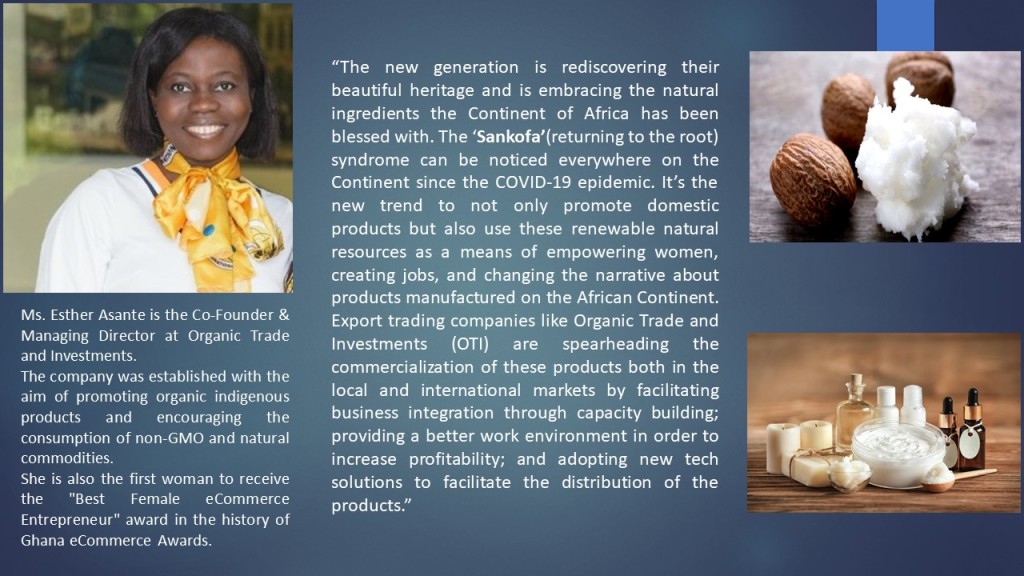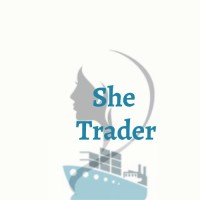
How has your journey been as a woman leader in the International Trade domain? What challenges have you faced?
My gender has never had anything to do with the many challenges I face on a daily basis in the domain. These multifaceted challenges are typical to the industry and part of the journey of every entrepreneur, regardless of their gender, I guess. I am respected, admired, and appreciated by my male counterparts.
In general, and typical of the sector in which I operate, most of the challenges are mainly external of which I have no control. High export duties and high cost of production, elongated shipping and transit time, shortage of shipping containers, currency fluctuations, rigid regulations, and bureaucracies are some of the challenges that all international traders know too well and sometimes make us want to quit.
You also seem to have a passionate interest in linguistics and philosophy apart from your professional journey. Please tell us something about that.
I have always been fascinated by the origins of nations. Studying etymology remains, in my humble opinion, one of the most reliable solutions to understand – and to a certain extent – the psychological behavior of an ethnic group but also to appreciate their culture and history. The language determines the identity of these groups of people. It carries their DNA, their way of doing, all their beliefs, and philosophy. I think every school in Africa – in particular – should study the etymology of their language to rediscover their origins.
Shea Butter is an integral part of the exports from Ghana and a lot of women are also involved in its production. How according to you can more women benefit from producing and exporting value-added products from Shea butter?
Prior to the colonization of the Continent by European invaders, West Africa was – and partially remains – a matriarchal society with women contributing 60% to 80% of the labor in both the production and distribution chain of raw materials. Most of the cosmetic products that were consumed post-80s were naturally handmade by our grandmothers or mothers. Unfortunately, with the massif rural exodus in the 90s, and the influence of Western culture on the Continent, there was a loss of connection with the African heritage. Foreign processed cosmetic products were referred to as premium quality products. The new generation is rediscovering their beautiful heritage and is embracing the natural ingredients the Continent of Africa has been blessed with. The ‘Sankofa’ (returning to the root) syndrome can be noticed everywhere on the Continent since the COVID-19 epidemic. It’s the new trend to not only promote domestic products but also use these renewable natural resources as a means of empowering women, creating jobs, and changing the narrative about products manufactured on the African Continent. Export trading companies like Organic Trade and Investments (OTI) are spearheading the commercialization of these products both in the local and international markets by facilitating business integration through capacity building, providing a better work environment in order to increase profitability, and adopting new tech solutions to facilitate the distribution of the products.
What are the necessary measures according to you that need to be taken to make International trade more inclusive for women?
It is well known that international trade is essential for economic growth that contributes to promoting sustainable development. It is therefore important to implement policies that encourage both social and gender inclusion – access to capacity building, access to a market, and access to both financial and mental support. In other words, the rules of the game must be the same for everyone, regardless of their gender, educational and social background, or ethnicity. None of the players in that domain should be discriminated against. Conversely, I would advise women in international trade not to be intimidated by their male counterparts but rather focus on building their knowledge and self-esteem. Nobody needs validation from anyone for their social emancipation and certainly not women.
What is your message to all the women entrepreneurs out there who are working to take indigenous products from their homelands around the globe?
It’s important for every entrepreneur venturing in the space of international trade to understand the market regulations, the needs, and the expectations of the market to build a sustainable and profitable business. Additionally, women need to start talking to each other and not be afraid of each other. It’s time they see themselves as key players and partners. Instead of being apprehensive about each other, let’s practice coopetition.

Leave a comment